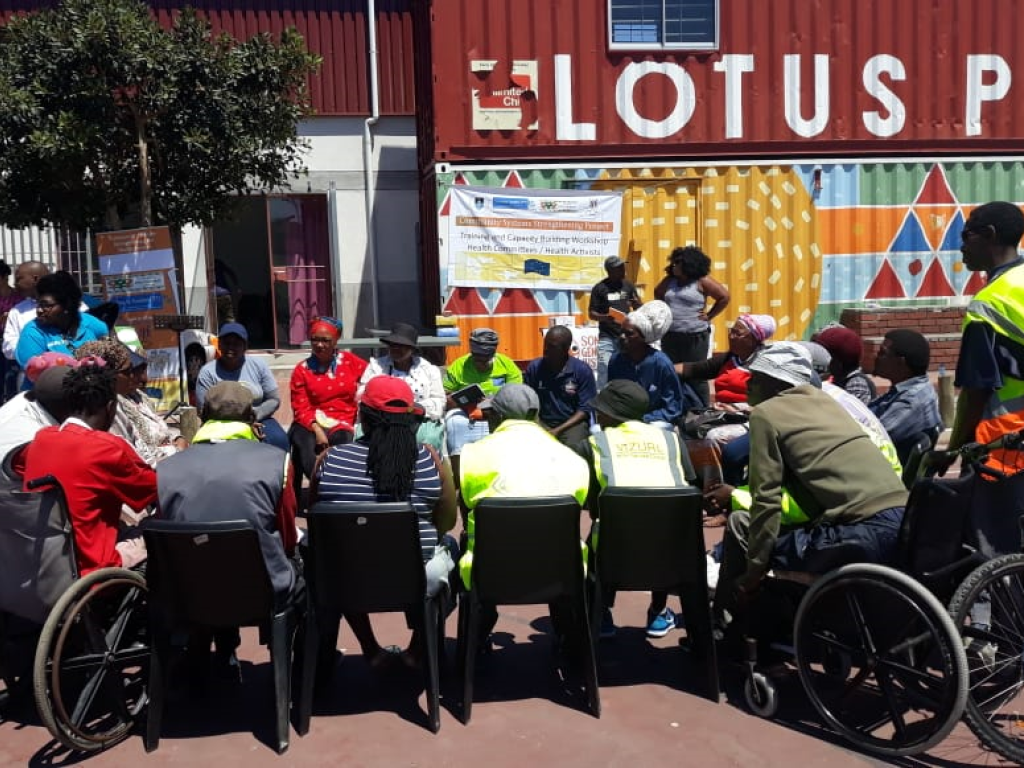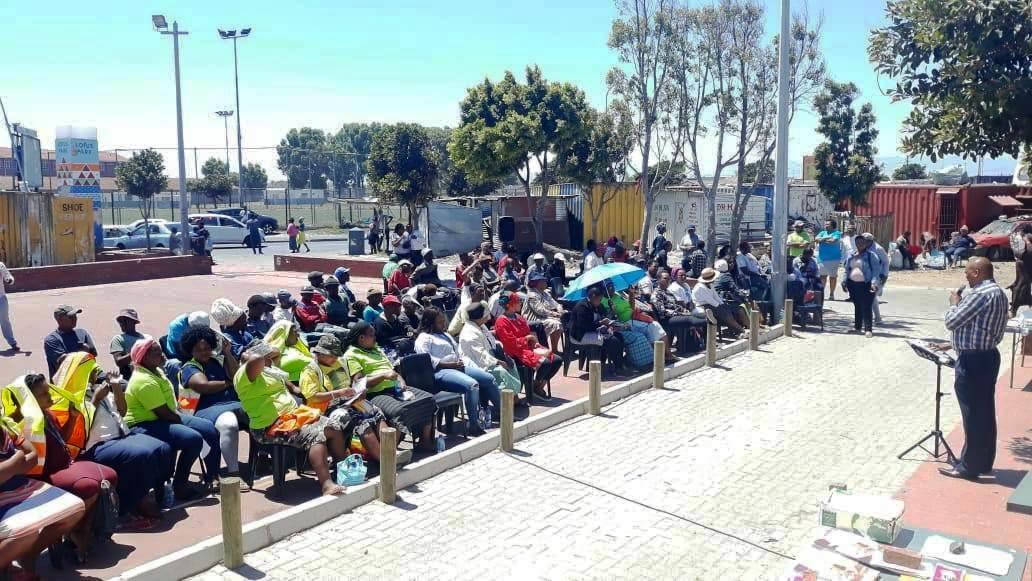Strengthening community health through participation

Vibrant discussions marked a recent dialogue held in Gugulethu under the banner of the Community Systems Strengthening (CSS) for Health Project. This pilot partnership project of the Learning Network for Health and Human Rights is managed by UCT’s School of Public Health and Family Medicine and aims to develop the capacity of community members to build healthier communities. The dialogue created a platform for community members, CSS participants and other stakeholders to discuss issues and interventions relating to the social determinants of health.
The CSS for Health Project trains community members and health committees in three pilot sites – Belhar, Klapmuts and Gugulethu – with a specific focus on the cross-cutting issues of food and nutrition, peacebuilding/violence reduction, health promotion, and child protection. The February community dialogue was led by Nohwi Mdayi, Gugulethu coordinator. Discussions were structured around the above themes and four breakout groups, under the direction of Fundiswa Kibido, CSS Gugulethu trainer, addressed specifically:
- Masihlale sisempilweni entle: Let us remain in good health
- Masixoxeni ngokwakha uxolo: Let us discuss peace building
- Masiphakameni sikhusele Iintsana zethu: Let us stand up and protect our children
- Siyigxotha njani ikati eziko mawethu: How do we secure our food
Discussions highlighted that the protection of women and children is fundamental to a healthy community and that developing and using community systems such as a local child protection forum is important. At the same time, community cohesion and dealing with conflict in a positive manner are required and local structures such as street committees can be drawn on to help resolve conflict.
The discussions on local food security covered a variety of needs including capacity development from food gardens to small-scale farming, business skills and access to markets.
At a systems level, community input into service and process improvements as well as budgeting were raised as essential for developing effective health facilities within communities. Community members also pointed out the need for improved communication and coordination of services at local level – whether services by government, non-governmental organisations or local community structures.
According to Project Manager Lucille Ryan, the CSS for Health approach is aimed at facilitating integrated responses to promote community well-being that are led by community members. “It is imperative that we see community dialogues as part of a process and not an end in themselves. Therefore, community members are aiming to build on their resources within Gugulethu but require assistance in linking with key resources outside the community. There is also the need for feedback from officials to communities on the issues raised at community dialogues.”
Lucille says one of the main outcomes of community dialogues is action followed by constant, collaborative reflection on progress.

The discussions were informed by inputs that contextualised the project (Leslie London, UCT); reflected on men’s health and advocacy (Ndumiso Mzazi, Movement for Change and Social Justice); summarised services at the local day hospital (Lunga Makamba, Gugulethu Day Hospital) and focused on gender-based violence (Skhangele Mabhulu, Sonke Gender Justice).
The CSS for Health Project is funded by the European Union Health and managed by the Health and Human Rights Programme in UCT’s School of Public Health and Family Medicine. It is a joint project with Training for Transition, Women on Farms Project, health committees in Belhar and Gugulethu, and health monitors in Klapmuts.